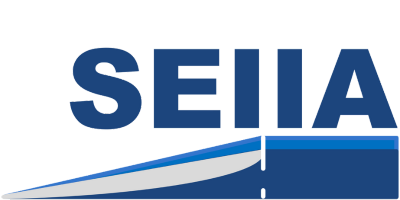Background
During the period October 2017 to June 2019, Swedish industry worked together in a project under the name "LCDM project". The aim of the project was to conduct a feasibility study to explore the possibilities of establishing a standardized data exchange between different IT support systems in a facility's life cycle. The project has also worked on how Swedish industry takes the next step into the digital transformation that aims to find solutions to Swedish industrial interoperability (* 1). The project has been part of the Strategic Innovation Program Process Industrial IT and Automation (PiiA), a joint venture of Vinnova, Formas and the Swedish Energy Agency. One of the results of the project was that the project team agreed that a continuation and an organization in Sweden needed to work on these issues. Around the world there have been various initiatives such as ThTh in Finland, Posc Caesar in Norway, CFIHOS in the Netherlands/Japan, Dexpi in Germany and Mimosa in the USA. Common to all these initiatives and organizations is that they are driven by industry without a specific profit interest. Establishing international standards in this area requires broad anchoring in various industry branches and together these initiatives/organizations represent most areas of plant-intensive industry.
The conclusion of the LCDM project was that a Swedish organization that can collaborate with other international organizations but also adopt the concepts and solutions developed around the world needs to be formed. In the spring and summer of 2019, therefore, the Economic association SwEdish Industrial Interoperability Association, SEIIA, was formed to support and actively work for a higher Interoperability in Swedish industry.
(* 1) The ability of different systems, often in a computer context, to work together and be able to communicate with each other.
Reasons for membership in SEIIA
To solve today's interoperability problems at a company or group level (* 2) requires knowledge and understanding of how the standards that exist today and that are constantly evolving function and can be implemented. Swedish industry has lagged behind from an international perspective when it comes to utilizing these existing standards and concepts. SEIIA's role is to work internationally with the transfer of skills from the various organizations that work, and has worked on these issues for a long time. SEIIA's role is also to lead Sweden's action in international standardization in this area, so that Swedish industry can influence future standards.
The main role that SEIIA has in Sweden is to help Swedish companies to train and support companies ' own staff in running their civil engineering projects in a way that creates high interoperability. Also how IT structure and master data management, digital twin can be wrist in the future is affected by what SEIIA will work with.
(* 2) By Interoperability problems is meant that today many plant owners experience shortcomings in how project deliveries include. is managed in the systems that will manage the facility during its life cycle. You do not get all the plant information you expected or get it delivered in a format that is not digital and therefore not machine-readable.
SEIIA's organization
The SwEdish Industrial Interoperability Association, SEIIA is an economic association with a board of directors where representatives from the plant owners are in the majority. Since It is a member-owned organization, the members together are the ones who manage the business through an annual general meeting. For the operational work, the association will collaborate with a number of people who handle the daily and operational work with international contacts, training, project support and lectures, etc. Initially, the association will not have its own employees.
Description of membership
Membership means that as a member you have access to information, services and products developed by the association or with the association signed cooperation agreements with international organizations and companies. Network of competence and exchange of experience in the area that the association has as a working area, industrial interoperability. The association will work to coordinate the exchange of experience and the development of guidelines and training. Run pilot projects and promote the development of Swedish industry plant information.
Membership is valid for one calendar year, membership is automatically extended for 12 months if it is not terminated. The Notice period is 6 months and must be made in writing to the association's office no later than last June (30/6) for membership to be terminated at the next year-end. Each contribution of SEK 1000 gives one (1) vote at the general meeting.
